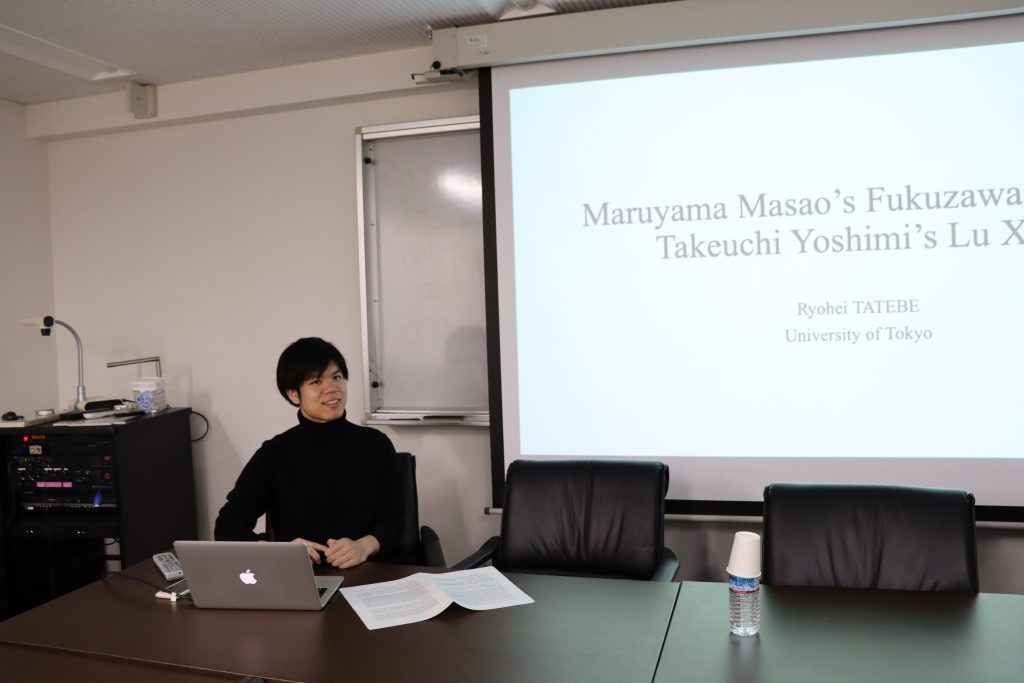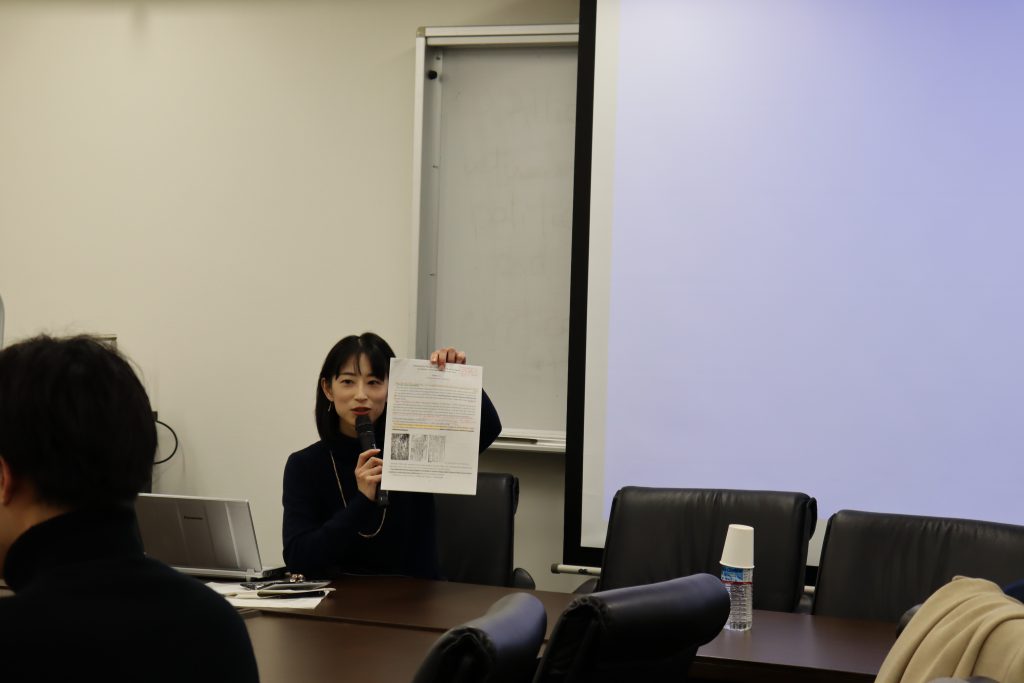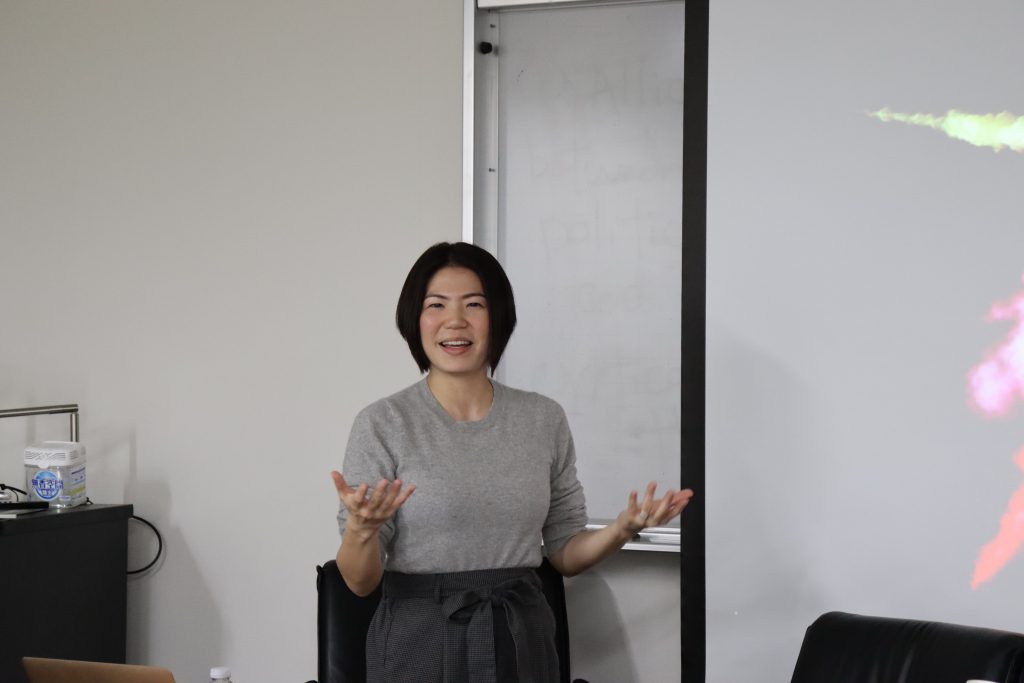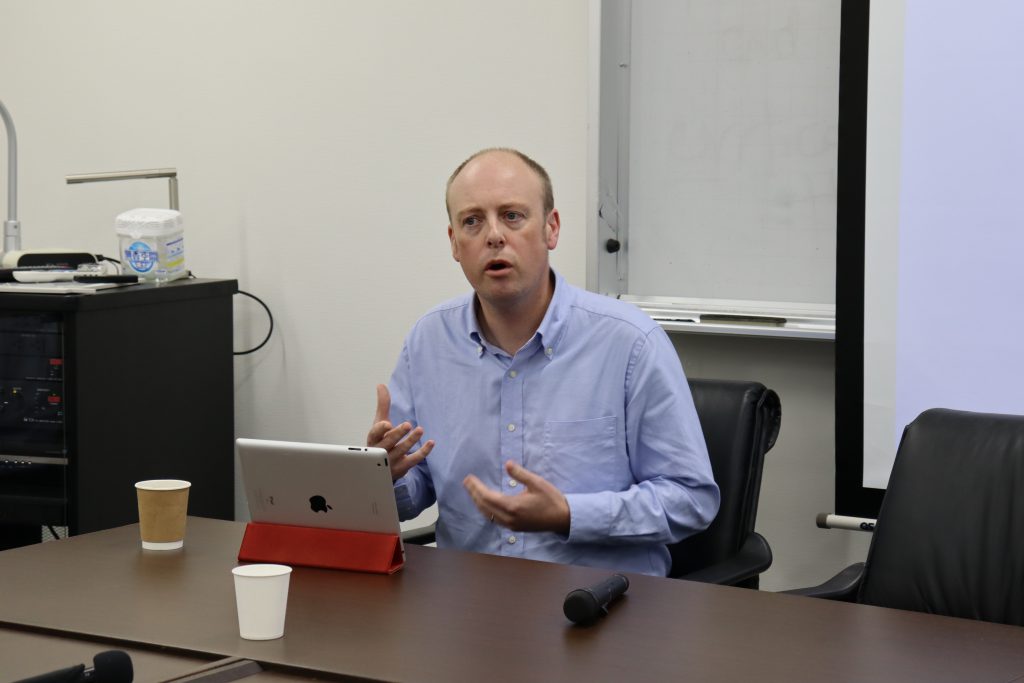On December 17, the EAA Workshop « Chinese and Japanese Ethics: History and Prospects » was held in Conference Room 1, at the Institute for Advanced Studies on Asia. The object of the workshop this time was to consider the traditions of Chinese and Japanese Ethics and their applications to society in relation to contemporary moral philosophy.
The first presentation was “Maruyama Masao’s Fukuzawa Yukichi, Takeuchi Yoshimi’s Luxun” by Ryohei Tatebe (EAA). He introduced their ways of readings based on his recent interest. In the discussion, the concept of «subjectivity» in Maruyama, the Kyoto School’s influence on Takeuchi, and the political possibilities of both inquiries were posed to reconsider the meaning of this approach.

The second presentation was “Exploring the Thought of Filial Piety in Japan: Its Acceptance and Development in Pre-Modern Times” by Mizuki Uno (EAA). She presented how the twenty-four paragons were used for moral teaching in China and Japan. Invoking Lu Xun’s reading of the twenty-four paragons (first encountered as a picture book during his childhood), she contrasted the different ways in which the text was used in the Tokugawa and in Meiji eras.

The third presentation was “Mencian Philosophy of Co-action as Compatibilism” by Rika Dunlap (University of Guam). Her main line of inquiry concerns the idea that Mencian discourse on human nature can be read as a form of compatibilism, i.e., a balance between free will and determinism. In a manner recalling Zhuangzi’s argument, questions of punishment and the difference between casual and moral responsibility were discussed following the presentation.

The fourth presentation was “Mozi’s Pantheism and Berkeley’s Theism: Dissolving (Or Not) the Tension between Consequentialism and Divine Command Theory” by Michael Hemmingsen (University of Guam). It was a complicated discussion for non-specialists, but after the presentation, the possibility of comparison with Wang Yangming’s thought, the question of profit, and the difference between determinism and reductionism in this context were posed.

While the central points of each presentation were articulated — and with thanks to Takahiro Nakajima’s helpful moderation —, some participants in the workshop voiced an interest in more context regarding the various traditions of moral and ethical thought, in so far as they were quite diverse and at moments seemingly difficult to square. There were also members of the audience who wondered aloud about how we might apply such moral or ethical theories to our contemporary situation. For example, how might we make sense of a recent case in Kawasaki, in which an unemployed hikikomori attacked others, or the heartbreaking case of filicide committed by a father anguished over the future of his hikikomori son? Similarly, how might these traditions of ethical thought help us to understand the controversial issue of Artificial Intelligence? These issues suggest that sharing fundamental knowledge and opening a horizon to discuss the subject further would be a worthy assignment for the future.
In closing, I would like to thank our two guests for traveling all the way to Tokyo and sharing their thoughts and research with us. I look forward to seeing you both again, and having another opportunity to share ideas. Lastly, I would like to thank Daikin Industries for its continual support for us, and the EAA staff for their help organizing this workshop.
Hanako Takayama (EAA Project Research Fellow)








